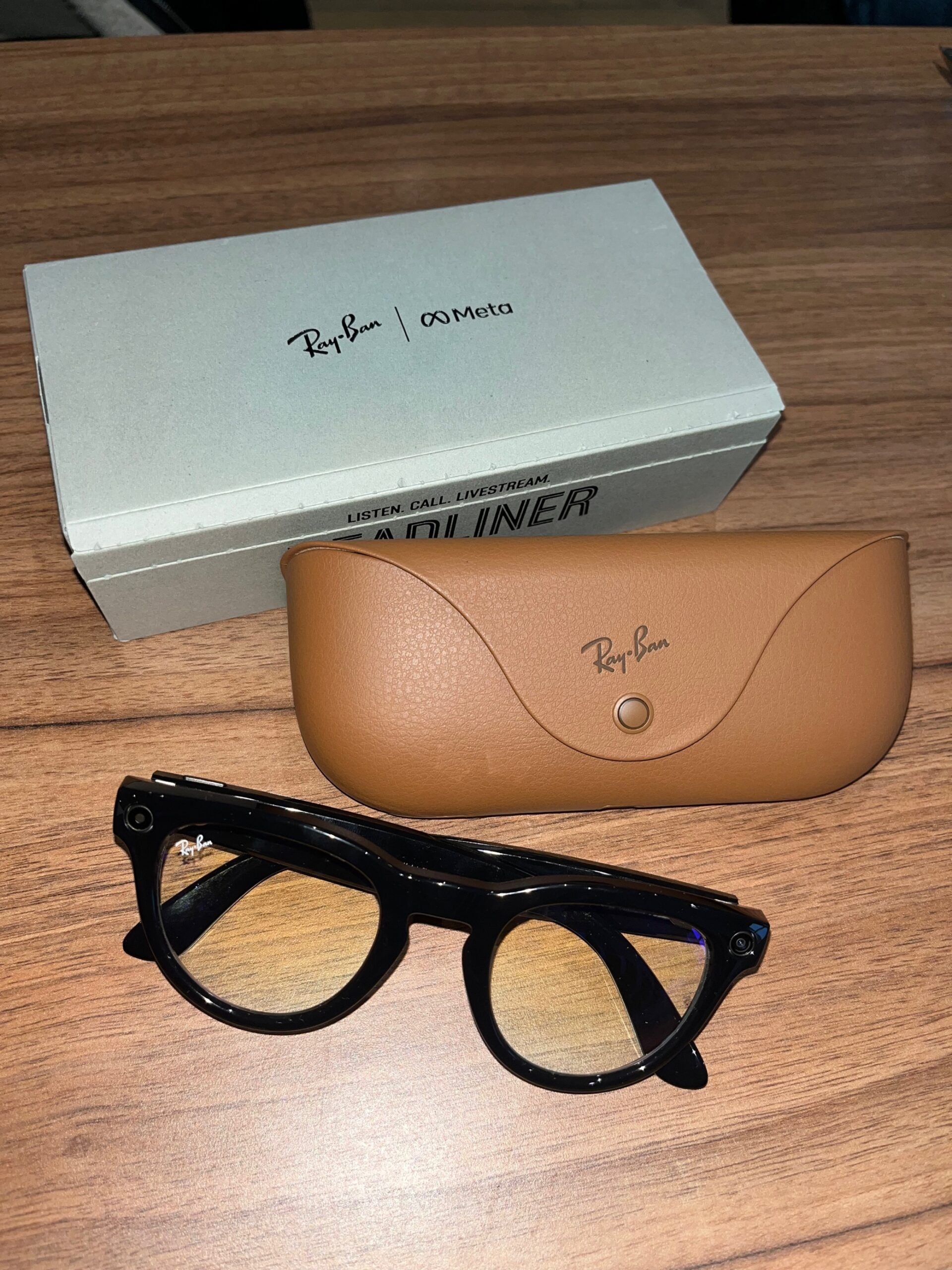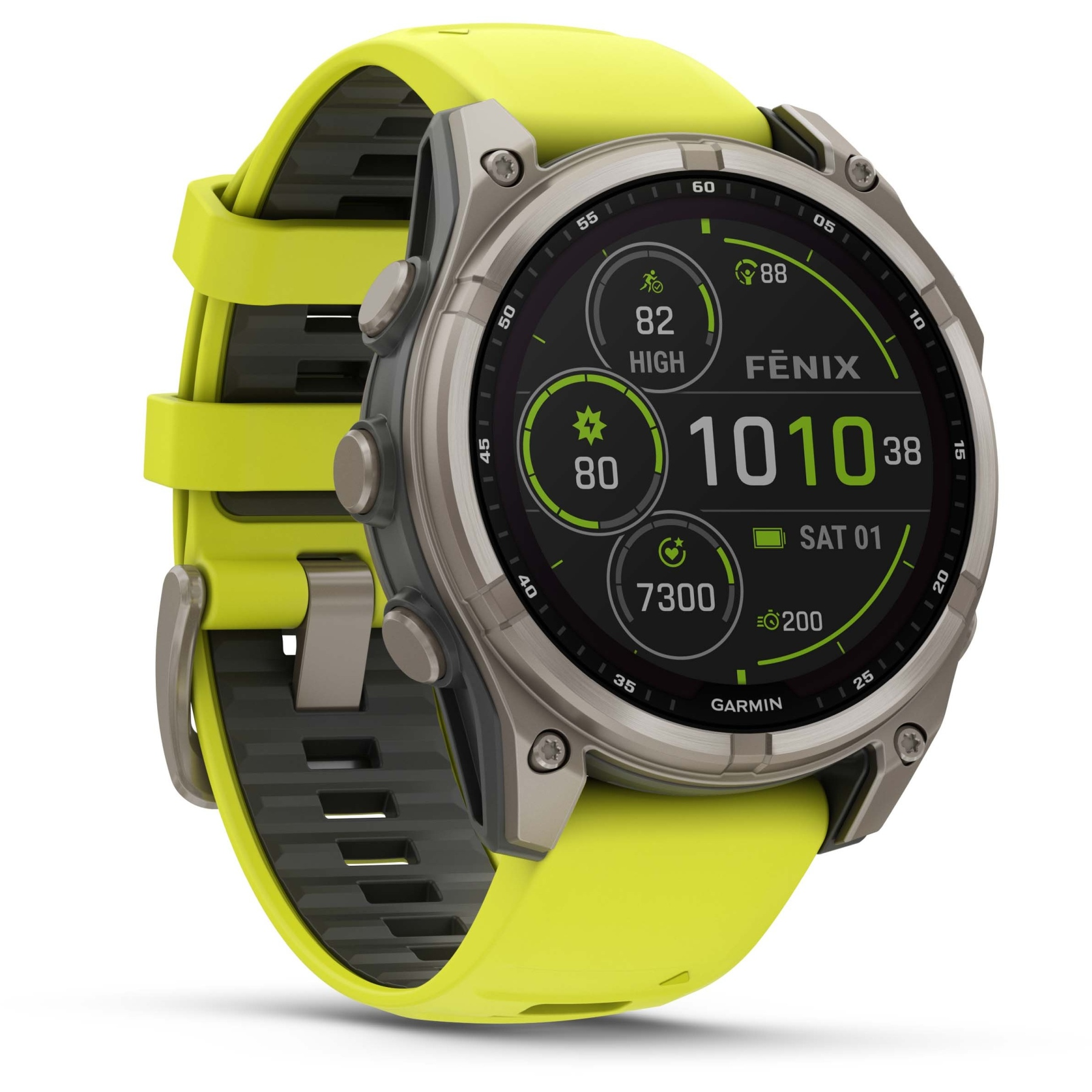Meta Ray-Ban Glasses: What You Need to Know About Them

Meta Ray-Ban glasses represent a bold leap into the future of smart wearables, blending cutting-edge technology with timeless eyewear style. These innovative glasses come equipped with advanced AI image recognition, aiming to redefine how we interact with the digital world. With updates shared by CEO Mark Zuckerberg, the glasses now incorporate features like message responses and QR code scanning, making them a versatile companion for daily tasks. However, despite their high-tech allure, users should be aware of emerging privacy concerns associated with these AI wearables. As we delve deeper into the Meta Ray-Ban experience, it’s essential to assess both their functionalities and the implications of integrating AI into our daily lives.
The Ray-Ban Meta spectacles are an intriguing entry in the realm of augmented reality eyewear, boasting remarkable capabilities for modern users. With integrated artificial intelligence, these innovative lenses are designed to enhance everyday experiences, offering features such as real-time notifications and interactive visual assistance. Announced during a recent conference led by tech visionary Mark Zuckerberg, updates promise even more capabilities that could transform how we engage with our surroundings. Yet, amid their futuristic promise, significant questions arise regarding user privacy and data security. As we explore the world of these advanced smart specs, it’s crucial to weigh their modern advancements against the ethical concerns surrounding AI technologies.
Meta Ray-Ban Glasses: A New Era of Smart Glasses?
Meta has boldly entered the realm of smart glasses, combining stylish Ray-Ban eyewear with cutting-edge AI technology. The Meta Ray-Ban glasses promise augmented experiences, featuring built-in AI image recognition that aims to enhance daily life with easy accessibility to reminders and social media interactions. However, despite these grand claims, the actual functionality remains questionable. Mark Zuckerberg’s latest updates aimed to bridge these gaps, but the reality often falls short of the hype. For enthusiasts of AI wearables, the anticipation of intelligent interaction is clouded by concerns about real-world applications.
In a world increasingly reliant on virtual systems, the integration of AI into wearables like Meta’s Ray-Ban glasses indicates a potential shift in consumer technology. While the concept of conversing with glasses to receive real-time information sounds appealing, users have reported glaring inaccuracies from the AI, particularly in niche areas of interest such as tabletop gaming and comics. Meta appears to struggle in providing a sophisticated experience, leading many to question whether these smart glasses are truly innovative or simply a stylish gadget that lacks substance.
Privacy Concerns Surrounding Meta’s AI Wearables
The intersection of fashion and technology always raises questions about privacy, and the Meta Ray-Ban glasses are no exception. Although marketed as a tool for convenience, the implications of having a camera-equipped device that can capture images on the go are significant. Privacy advocates express concern over how much data these glasses can potentially collect, especially since Meta has acknowledged that any images taken for analysis are used to train their AI. Users must navigate a landscape where their personal data might be exposed, raising alarms about accountability and trust in the tech giant.
Furthermore, while Meta reassures users that sensitive facial recognition technology is not utilized, the potential misuse of such features, as demonstrated by University students who hacked the glasses, paints a troubling picture. By circumventing security protocols, these modified glasses showcased the alarming capabilities that could arise if such technology fell into the wrong hands. Thus, while the design and features of Meta’s Ray-Ban glasses aim to revolutionize the way we interact with the world around us, they also compel users to reconsider the implications of privacy in an era ruled by AI wearables.
AI Image Recognition: Are the Meta Ray-Ban Glasses Effective?
The core appeal of the Meta Ray-Ban glasses lies in their AI image recognition capabilities, which are intended to enhance the user experience by identifying objects and providing contextual information. However, anecdotal evidence suggests that this feature may not be as effective as promised. Users have reported significant inaccuracies when attempting to identify familiar items, particularly niche collectibles from nerd culture, leading to embarrassment and frustration. Such outcomes undermine the technology’s credibility, causing users to question the actual value of the AI integration in everyday scenarios.
Moreover, while the concept of an AI capable of interpreting images in real-time sounds revolutionary, practical applications seem limited. Instances where users asked the AI to recognize beloved gaming memorabilia resulted in comedic misidentifications, illustrating how these glasses often miss the mark. The reliance on AI for intelligent interaction seems naive, especially when compared to human knowledge in specific domains like fantasy and gaming. This raises an essential question: if Meta’s AI can’t handle niche queries from devoted fans, what is its purpose in the broader context of smart wearables and daily tasks?
Mark Zuckerberg’s Vision for Smart Eyewear: A Closer Look
During the recent Meta Connect conference, CEO Mark Zuckerberg shared his ambitious vision for the future of smart eyewear, particularly focusing on the new capabilities of the Meta Ray-Ban glasses. The introduction of features such as reminders and improved message handling and QR code scanning suggests a forward-thinking approach to integrating technology with daily life. However, despite the promising updates, users remain skeptical about the execution, especially with the AI component exhibiting flawed performance in tasks that seem simple on the surface.
While Zuckerberg’s vision emphasizes a frictionless blend of social media and personal connectivity, it also exposes the limitations of current AI technologies. Many users have expressed their concerns about being fed incorrect information or lacking the seamless interaction that should accompany such innovations. This presents a challenge for Mark Zuckerberg and Meta to prove that their smart glasses can genuinely transform the way we engage with our environment and each other, rather than becoming mere accessories with novelty features and fleeting uses.
AI Wearables: The Future of Interaction or Just Hype?
The evolution of AI wearables like the Meta Ray-Ban glasses underscores a potentially transformative shift in consumer technology. With the rapid advancements in artificial intelligence and machine learning, there’s speculation about whether these devices will redefine how we interact with the world around us. Proponents see AI wearables as the next frontier, offering unique functionalities that can simplify everyday tasks, enhance social interactions, and provide real-time information. However, as recent user experiences suggest, the journey from concept to execution is fraught with challenges.
Critics argue that while the promise of smart glasses is thrilling, the current implementation does not live up to expectations. Meta’s attempt to merge aesthetics with technological sophistication may ultimately reveal the limitations of AI, making the glasses more gimmicky than groundbreaking. As users continue to evaluate their effectiveness, it’s essential for companies to prioritize accuracy and reliability in their AI systems to ensure that wearables truly serve their intended purpose, rather than contributing to a landscape of disappointment and mistrust.
User Experience: Navigating the Meta Ray-Ban Glasses
The user experience with the Meta Ray-Ban glasses is often characterized as mixed, highlighting a divide between the appeal of advanced technology and the reality of its performance. Consumers find themselves excited by features such as hands-free reminders and integration with messaging platforms, but frustrations arise when interactions with the AI deliver disappointing results. Users expect a level of proficiency befitting such an innovative product, yet many report concerns over accuracy and connectivity, particularly in casual tasks that should be straightforward.
Additionally, the sheer novelty of incorporating AI into eyewear can lead to unrealistic expectations. Many users anticipate seamless interactions that rival traditional mobile devices, but initial encounters often reveal a lack of understanding from the AI, as seen in countless misidentifications and inaccurate responses during testing. This disconnect between anticipation and reality can lead to a lack of trust and confidence in the technology that Meta hopes to establish in the wearables market.
The Intersection of Fashion and Functionality: Meta Ray-Ban Glasses
One of the most compelling aspects of the Meta Ray-Ban glasses is their design, which merges the iconic aesthetic of Ray-Ban eyewear with advanced wearable technology. This collaboration aims to ensure that users do not have to sacrifice style for functionality, an alluring feature that appeals to fashion-conscious consumers. However, as individuals dive deeper into the functionality of the smart glasses, they often discover that the impressive visual appeal does not translate to an effective user experience.
Fashion might attract consumers to the product, but the reluctance to fully engage with the glasses due to performance shortcomings can overshadow their stylish appearance. The integration of AI image recognition and smart capabilities is a significant selling point, yet if these features fail to impress or provide actionable insights, users may begin to question the value of the investment. Balancing aesthetics with intelligent functionality is key for Meta as they navigate this new niche in consumer technology.
The Role of Consumer Feedback in Future Iterations of AI Glasses
Consumer feedback plays a crucial role in shaping the evolution of any technology product, and Meta’s Ray-Ban glasses are no exception. As users continue to voice their experiences and challenges with the glasses, it is imperative for Meta to remain attentive to these insights to improve their AI features. Many enthusiasts express a desire for a system that is adaptive and capable of understanding core cultural references, especially when it comes to niche communities like gamers and comic book fans.
The constructive criticism surrounding the Meta Ray-Ban glasses highlights a path forward for Meta and similar companies looking to capitalize on smart eyewear. By actively engaging with user experiences, developers can identify specific areas that require enhancement, particularly in terms of accuracy and contextual understanding. Emphasizing user input could lead to the development of a product that genuinely caters to the needs and preferences of its audience, fostering a more positive reception in future iterations.
Meta’s Ambition in the Growing Market of AI Technologies
As the global market for AI technologies expands, Meta’s foray into smart glasses signifies its ambition to remain relevant in the increasingly competitive tech landscape. The introduction of AI-driven wearables aims to resonate with consumers eager for innovative functionality in their everyday lives. With competing products continuously emerging, Meta’s Ray-Ban glasses must not only stand out in design but also prove their worth through reliability and utility in real-world applications.
The current landscape illustrates a burgeoning interest in AI-driven tools, compelling Meta to leverage its position as a social media dominator to attract tech-savvy users. However, the success of such ambitious ventures relies heavily on the technological capabilities and perceptions surrounding their effectiveness. Meta’s commitment to ongoing improvement of its smart glasses can pave the way for further advancements in the field of AI wearables, marking a crucial turning point in how these technologies may influence daily life.
Frequently Asked Questions
What are the key features of Meta Ray-Ban smart glasses?
The Meta Ray-Ban smart glasses integrate AI image recognition, offering functionalities like reminders, QR code scanning, and messaging via WhatsApp and Messenger. CEO Mark Zuckerberg recently updated features, enhancing how users interact with their environment using AI and smart wearables.
How does the AI image recognition in Meta Ray-Ban glasses perform?
The AI image recognition in Meta Ray-Ban smart glasses has shown limitations, often misidentifying objects and characters. For instance, it confused well-known figures from RPGs and comics with unrelated characters, highlighting its struggles with niche topics and nerd culture.
What updates did Mark Zuckerberg announce for the Meta Ray-Ban glasses?
At the latest Meta Connect conference, Mark Zuckerberg announced important updates for the Ray-Ban glasses, including the ability to access reminders, scan QR codes, and respond to messages on social media, enhancing user interaction with this AI wearable.
Are there any privacy concerns with Meta Ray-Ban smart glasses?
Yes, privacy concerns surrounding Meta Ray-Ban smart glasses stem from their data collection practices. Although the AI doesn’t identify individuals, any image captured for analysis could potentially be used to train the AI, raising significant privacy issues.
How do Meta Ray-Ban glasses compare to other AI wearables?
Meta Ray-Ban glasses provide basic AI functionalities, yet they fall short in accuracy and reliability compared to other AI wearables, often overlooking specific interests in gaming or comic cultures, making them more of a novelty rather than a practical device for enthusiasts.
Can Meta Ray-Ban glasses perform real-time translation and video scanning?
While real-time translation and video scanning are anticipated features for Meta Ray-Ban smart glasses, as of now, these functionalities are not confirmed to be operational, leaving users with basic AI capabilities that may not meet their expectations.
What benefits do the AI features of Meta Ray-Ban glasses offer users?
The AI features of Meta Ray-Ban glasses, like sending reminders and messaging friends, are intended to simplify tasks in daily life. However, users have reported that these features often lack practicality and depth, leading to a mixed reception.
How do Meta Ray-Ban glasses maintain a balance between functionality and style?
Meta Ray-Ban glasses are designed to combine advanced smart functionalities with stylish designs, appealing to a trendy audience. However, the integration of AI does not fully match expectations for nerd culture, which may hinder their appeal in that demographic.
| Feature/Aspect | Details |
|---|---|
| AI Capability | Built-in image recognition, struggles with nerd culture references. |
| Updates Announced | New features like reminders, QR scanning, and messaging integration. |
| Accuracy Issues | Often misidentifies items and lacks specificity in responses. |
| Privacy Concerns | AI collects data on analyzed photos; lacks facial recognition. |
| Usability | Moderately good audio quality but not as good as headphones. |
| Target Audience | Marketed towards influencers, not nerd culture. |
Summary
Meta Ray-Ban glasses introduce a fascinating blend of AI technology and fashion, yet they fall short in delivering reliable smart features. Despite boasting updates like reminders and QR scanning, their actual performance leaves much to be desired, especially in recognizing nerd culture elements and ensuring privacy. While aimed at influencers and casual users, those looking for serious utility or detailed engagement with niche interests may find these glasses lacking. As the technology evolves, it remains to be seen if future iterations will better accommodate the diverse needs of users.
You may also like
Archives
Calendar
| M | T | W | T | F | S | S |
|---|---|---|---|---|---|---|
| 1 | 2 | 3 | 4 | 5 | ||
| 6 | 7 | 8 | 9 | 10 | 11 | 12 |
| 13 | 14 | 15 | 16 | 17 | 18 | 19 |
| 20 | 21 | 22 | 23 | 24 | 25 | 26 |
| 27 | 28 | 29 | 30 | 31 | ||


